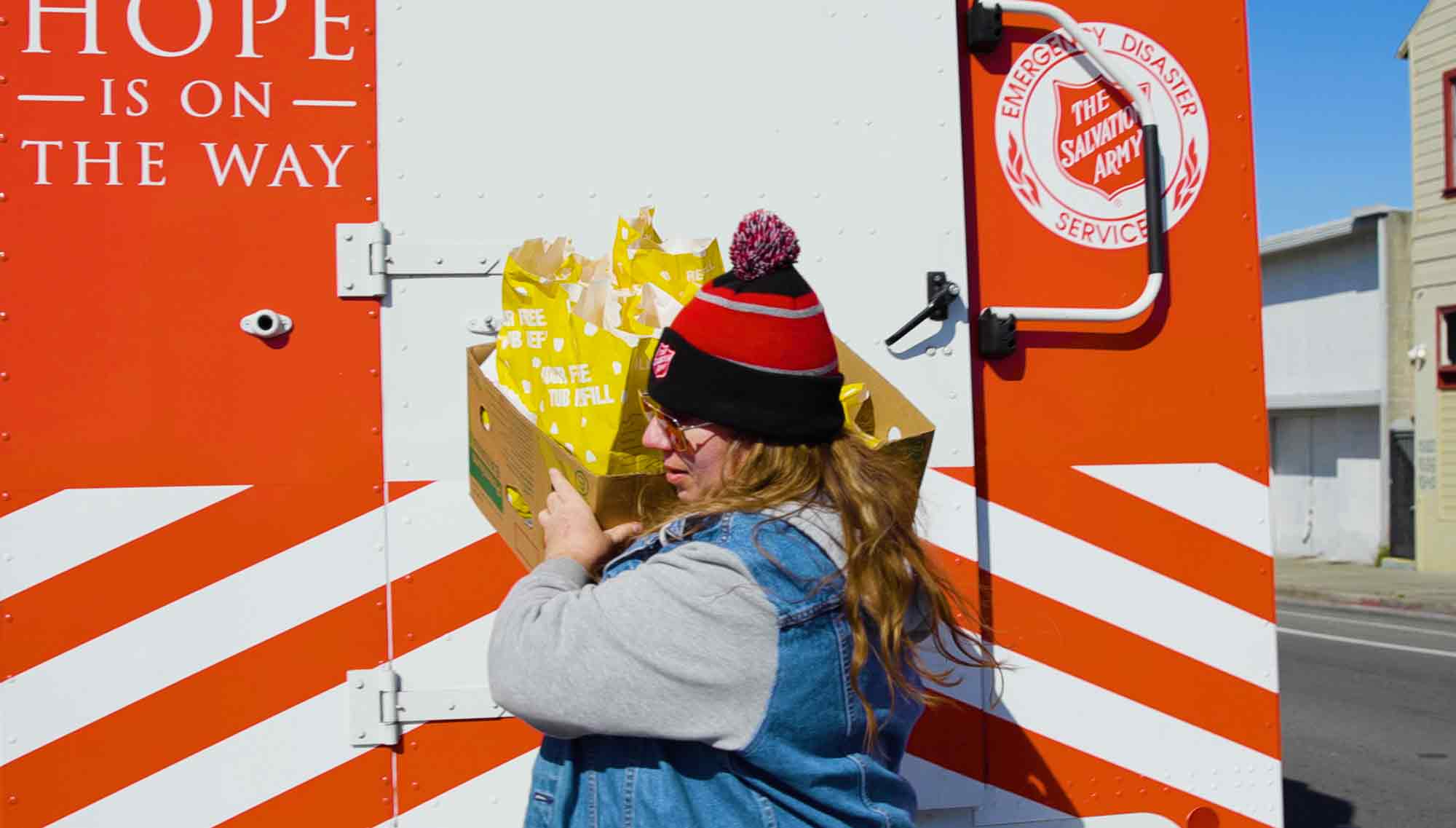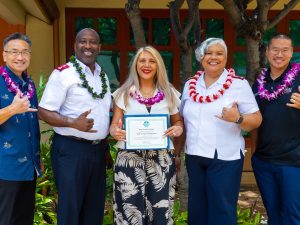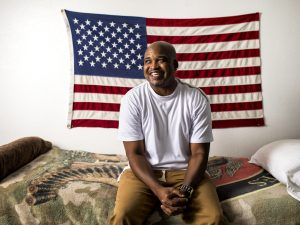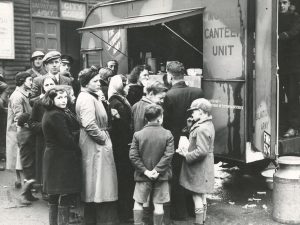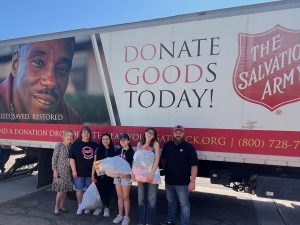On a brisk Monday morning in Oakland, California, The Salvation Army Mobile Outreach Team loads their Emergency/Disaster Services (EDS) truck full of meals, clothes and toiletries in preparation for the day ahead. The program, which began through a bit of happenstance, recently began its third year serving the community.
“The pandemic hit, and we had to close our daycare centers because families weren’t bringing their students,” recalled Major James Sullivan, Divisional Secretary for Alameda County. “The first day we were closed, I forgot to tell the kitchen, so the kitchen prepared the meals for the children just like they normally do, and they realized that the daycare was closed.”
When asked by the kitchen staff what they should do with the 60 meals that were prepared, Sullivan thought of the thousands of people currently unhoused on the streets of Oakland. That simple mistake launched the Mobile Outreach Team.
Within the first week of delivering meals, the number jumped to 200. Within a month, the team was delivering 500 meals per day to those on the streets of Oakland. But the team continued to see a need that was greater than food alone.
“Instead of being a mobile meal delivery program, we began to be a mobile outreach team because we wanted to find answers for these individuals that we met,” said Sullivan. “We built relationships with these people that were living on the streets where we would call them by first name, and they would call us by first name.”
Kristina Gutierres, an early member of the Mobile Outreach Team, knows the challenges of reaching those living on the streets of Oakland.
“It takes a long time to even build their trust. Showing up and being there every day helps that greatly,” Gutierres said. “The willingness to be out there and do that for them gives them that little bit of home and that love. Then that opens up a lot more dialogue for me to be able to talk to them to see what they need to get them out of the situation that they’re in.”
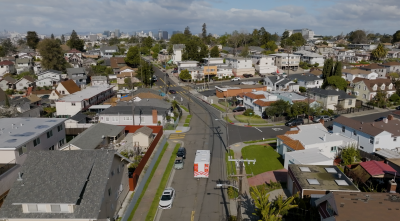
Eric Moss was living on the street, and in need of that Salvation Army home and love Gutierres referred to.
“Growing up in Oakland, I just didn’t have the childhood that I think a child should have,” said Moss. “By 4 or 5 years old I was smoking pot. I started selling cocaine at 11 years old. My first experience with The Salvation Army, I was a recipient of the outreach program when they came around to pass out food and toiletries.”
Moss said he’s seen a lot on the streets. “It’s really a deplorable situation,” he said. “I’m glad The Salvation Army is here to be able to help people like myself, to get them out of their situation to become the person that they want to become.”
Moss is one of 27 people who have been helped off the streets of Oakland with the help of the Mobile Outreach Team.
“That’s the number that we want to see grow,” said Sullivan. “Because that’s a life that’s changed. A life that’s gotten out of the street and now that person has hope. They’re in a program, or they’re in some type of housing, and there’s people surrounding them and caring for them on that next step. So that’s what we want to do; we want to make a full life change.”
Sometimes, that life-changing moment requires a shock to a person’s system.
Moss said he knew right away what that moment was for him: “Seeing my mother cry, I knew that I needed to get my jumper cables on me like a booster box for a car. That’s what The Salvation Army does for me. They resuscitate souls. They give a person hope.”
Moss now volunteers his time to the Mobile Outreach Team to help be that difference-making moment in other people’s lives. Working with Gutierres, he said it’s her approach and her personality that makes the difference.
“Everyone smiles when she pulls up,” he said. “Not just for the food, not just for the toiletries, not just for the pillows—I think because of Kris.”
“We just let them know that we are dependable,” said Gutierres. “It’s human compassion. It’s kindness. It’s loving on them regardless of their situation or addiction …It’s that interaction and that connection that does it for me. Is it really a job if you love what you do?”
Do Good:
- See how The Salvation Army fights homelessness.
- Are you best suited to join the Fight for Good in disaster relief? Mental health? Social justice? Take our What’s Your Cause quiz and discover where you can make the biggest impact today.
- Watch this video to hear Ruth’s story and the impact The Salvation Army had on her family and their future through Pathway of Hope.








